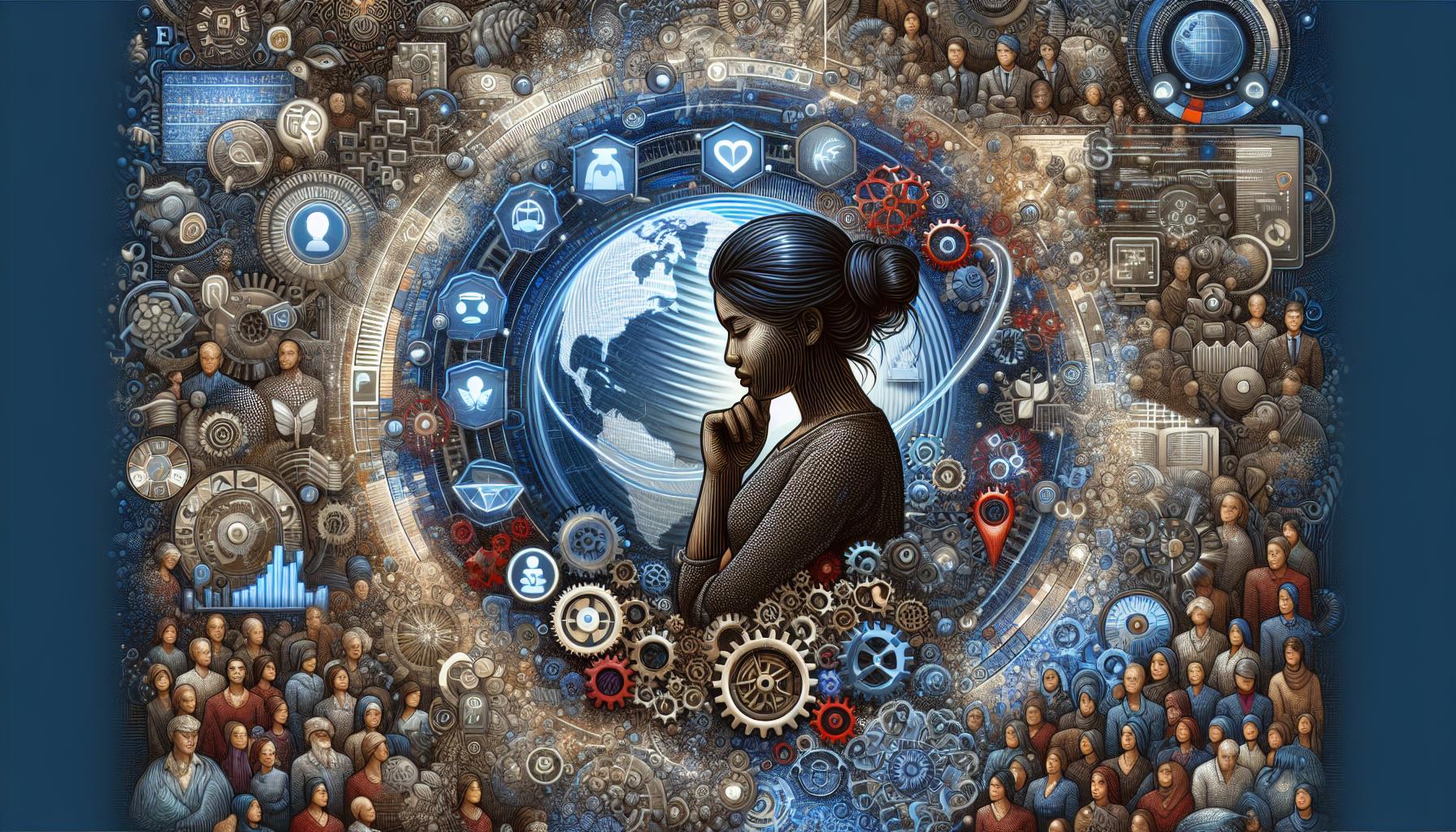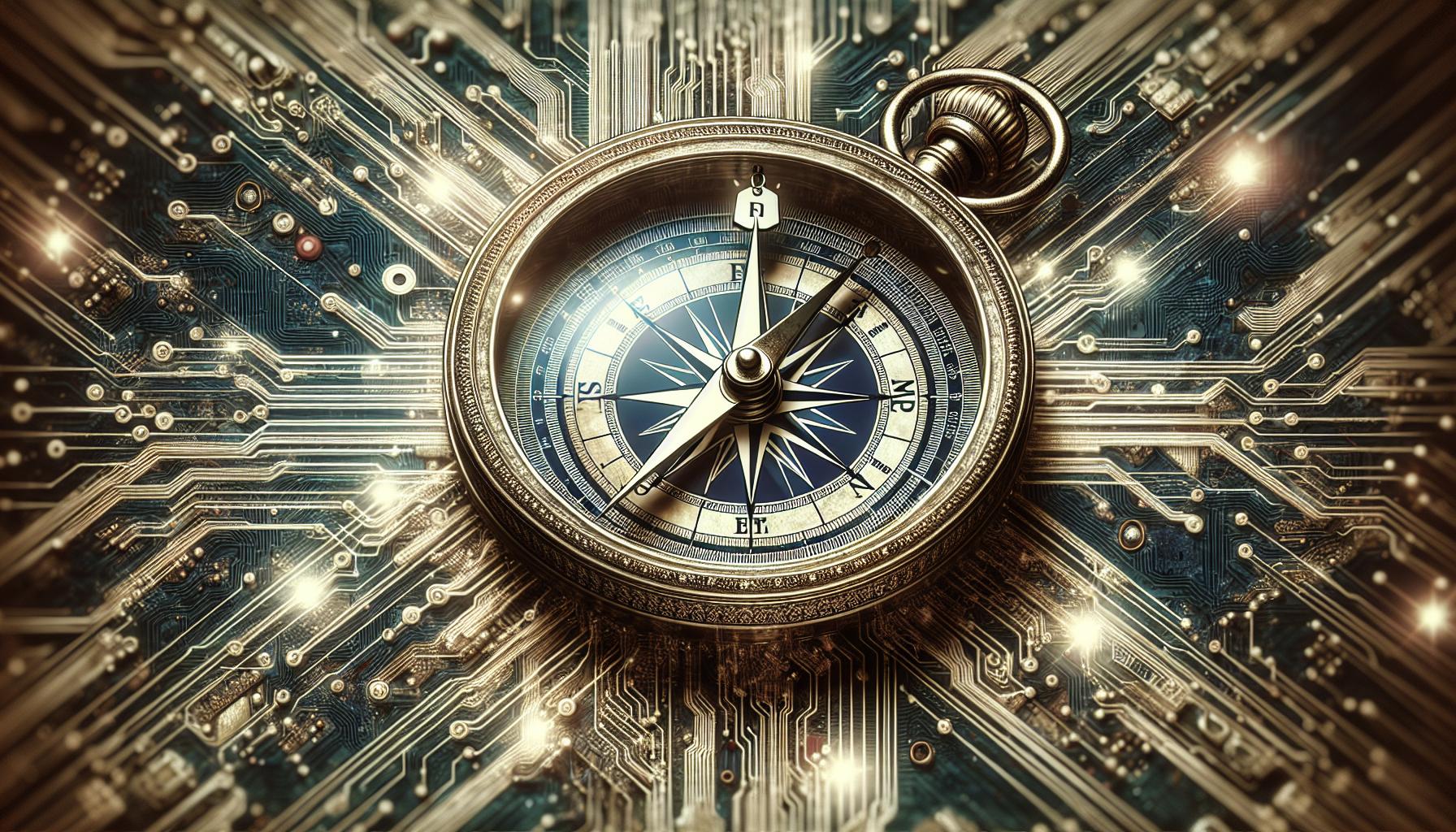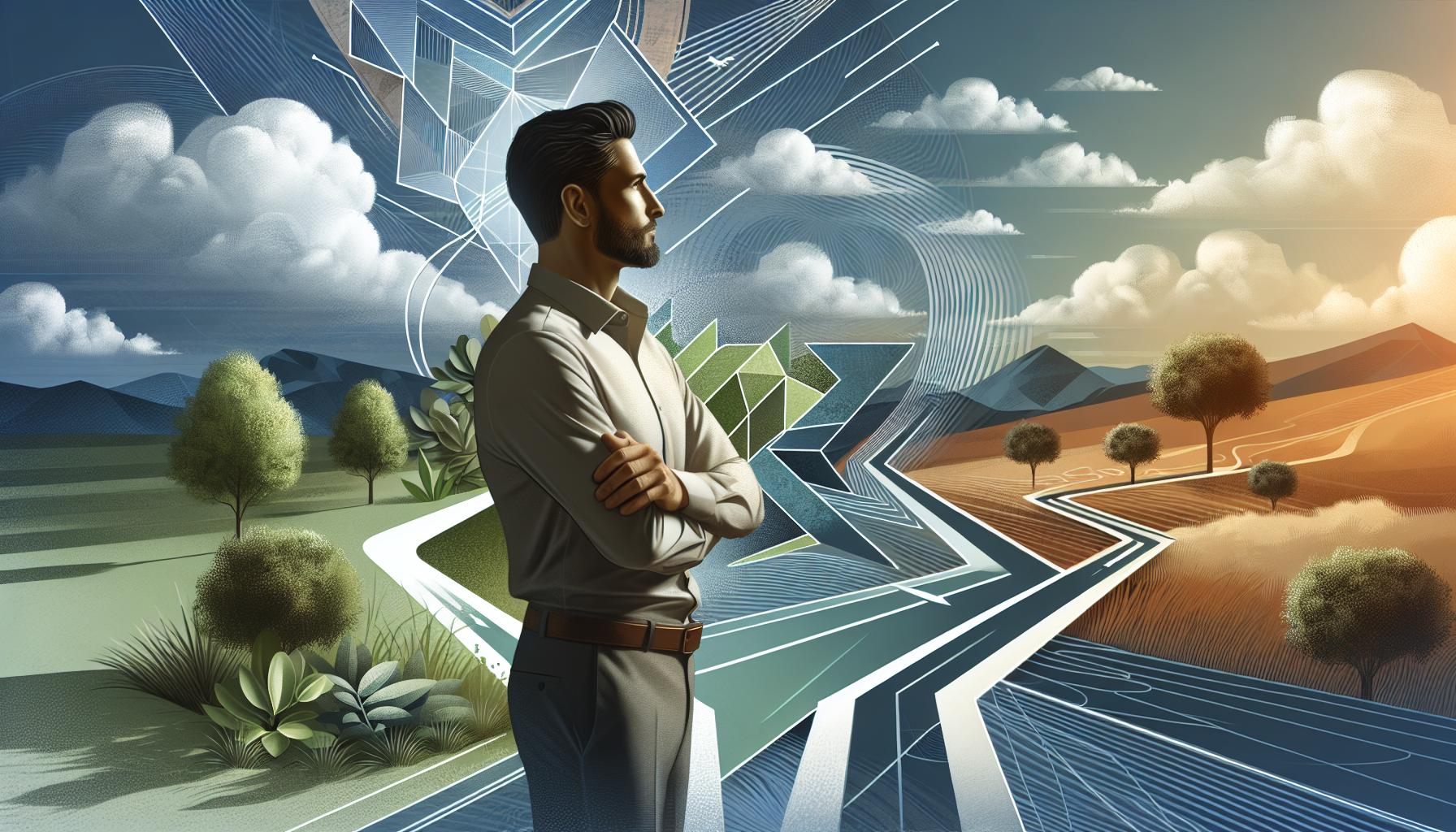Diving into “21 Lessons for the 21st Century” by Yuval Noah Harari felt like embarking on an intellectual adventure. Harari’s knack for weaving history, science, and philosophy into digestible lessons is nothing short of genius. It’s not just a book; it’s a roadmap for navigating the complexities of our modern world.
Why am I the guy to break this down for you? Well, I’ve spent years devouring books on history, technology, and philosophy, not just for the love of knowledge, but to share these gems in a way that’s relatable and impactful. My journey’s given me a unique lens to distill Harari’s insights into something you can apply to your life, today.
Three key takeaways? First, understanding the power of stories is crucial in a world driven by narratives. Second, technology’s rapid growth demands ethical considerations we’ve barely begun to tackle. And third, in the face of uncertainty, cultivating personal resilience and adaptability is key. Let’s dive deeper into these lessons and how they can shape our future.
Overview of “21 Lessons for the 21st Century”
The Power of Understanding
As mentioned, Yuval Noah Harari does an incredible job of weaving historical insight with modern dilemmas, offering a blueprint for navigating our complex world. I’ve personally always been fascinated by how the past informs our future, and Harari’s book hit home by illustrating this link through compelling examples like the rise of AI and how history’s technological leaps mirror today’s digital revolution.
Navigating Technological Ethos
One of the key lessons for me was the importance of ethical considerations in the face of rapid technological advancements. Harari doesn’t just throw facts at you; he invites you to think about the implications. There was a story, for instance, about a software developer who inadvertently contributed to a biased AI system, showcasing the unforeseen consequences of our creations. It’s a stark reminder that we’re not just users of technology but its stewards.
The Art of Resilience
Building personal resilience in a world that’s constantly changing has never been more relevant. Harari’s insights on the matter are not just philosophical musings but practical advisories. Last year, I found myself overwhelmed by the pace of change in my own field, but applying Harari’s advice on adaptability not only helped me cope but thrive. It’s about seeing change as an opportunity, not a threat.
Stitching Yesterday’s Lessons with Tomorrow’s Challenges
Harari masterfully brings together the lessons of the past and the challenges of the future, urging us to question and understand rather than fear. His discussions on narrative-driven politics and the illusion of free will in the digital age are both thought-provoking and terrifying. For example, the book details how political narratives can shape public opinion and decision-making, underlining the importance of critical thinking in today’s information-saturated world.
Eternal Learning
The call to remain an eternal learner in the book resonates deeply with me. With the backdrop of data showing that the average career span is now under seven years, Harari’s push for continuous education and skill adaptation isn’t just practical advice; it’s survival tactics for the 21st century. The idea of reinventing oneself periodically has become a personal mantra.
In all, Harari’s work isn’t just a book; it’s a manual for living consciously and meaningfully in a world brimming with change and uncertainty.
Key Themes Explored by Yuval Noah Harari

Navigating the Information Age
In 21 Lessons for the 21st Century, Harari hits the nail on the head about the overwhelming surge of information we’re bombarded with daily. He describes our era as one where information overload has become a more pressing issue than scarcity. I’ve felt this myself, scrolling endlessly through social media, feeling like I’m drinking from a firehose. Harari suggests a solution that’s both simple and profound: cultivate critical thinking and focus on learning how to learn. It’s not about knowing all the facts but understanding what to do with them.
The New Ethical Dilemmas
Harari dives deep into ethical quandaries presented by modern technology, such as AI and biotech. He proposes we’re at a pivotal moment in history, where our decisions could reshape humanity’s future. For instance, the debate around privacy versus security in the digital age is something that hits home for me. I’ve grappled with how much of my personal life I should share online, especially when it feels like a trade-off for the convenience technology offers. Harari’s insights encourage me to think more deliberately about these choices.
Resilience in the Face of Change
One of the most compelling takeaways for me is the importance of emotional and psychological resilience. As Harari points out, the 21st century is defined by rapid change, making adaptability crucial for survival. I’ve experienced this firsthand in my career, shifting from a traditional job to freelancing. It was a leap that tested my ability to cope with uncertainty but ultimately led to personal growth. Harari’s advice on embracing change rather than fearing it has been a guidepost for me.
Unity in a Divided World
Harari doesn’t just highlight problems; he aims to offer solutions. One of his key themes is fostering global cooperation in facing challenges like climate change and technological disruption. At a time when it seems like divisions are growing deeper, I find Harari’s call for unity inspiring. Whether it’s participating in community clean-up efforts or engaging in thoughtful discussions with people of different viewpoints, I’ve found small ways to contribute to this larger goal.
Each theme Harari explores isn’t just theoretical; they’re incredibly relevant to the here and now, providing a framework for making sense of the world around us.
Importance of Understanding the Power of Stories

As I dove deeper into Harari’s insights in “21 Lessons for the 21st Century,” one compelling theme stood out: the profound impact of stories. It’s not just about the narratives we read or watch; it’s about the ones we live by. Harari argues, and I’ve seen it firsthand, that stories shape our world, influencing everything from personal beliefs to global politics.
The Science Behind Stories
Let’s get into the nitty-gritty: why are stories so powerful? Neuroscience tells us that human brains are wired for storytelling. A study from Princeton University highlighted that stories synchronize the listener’s and storyteller’s brains, fostering empathy and understanding. This isn’t just fascinating—it’s a reminder of how stories can bridge divides.
Stories Define Us
Every culture, every nation, and every family has its stories. Remember when I mentioned how my grandmother’s tales taught me resilience and kindness? Those were more than just bedtime stories; they were life lessons. Stories aren’t just for entertainment; they mold our values and beliefs from a tender age.
The Double-Edged Sword
But here’s the rub: stories can unite us, but they can also mislead. In the age of information overload, distinguishing fact from fiction has never been more crucial. Harari speaks— and I echo—about the responsibility that comes with crafting and sharing stories. With great power comes great responsibility, right?
Crafting Our Future
As we stand on the brink of technological revolutions and social upheavals, the stories we tell ourselves about the future matter massively. Just as Harari posits, envisioning dystopian nightmares might paralyze us, but painting utopian dreams can guide us toward a brighter tomorrow. It’s not just about predicting the future; it’s about inspiring it.
Through exploring Harari’s work, it’s clear that understanding the power of stories is not just an academic exercise—it’s a crucial life skill. And as I reflect on the narratives that have shaped my journey, I’m reminded of the incredible power I hold as a storyteller. It’s a power we all share, and one we must wield wisely.
Ethical Considerations in the Rapid Growth of Technology

In my journey diving into Harari’s landscapes of the future, I’ve been struck by the stark reality of our Ethical Crossroads with technology’s growth. It’s like we’re at this buffet of infinite possibilities, yet we’re not quite sure which dishes are safe to gobble up. Let me break this down.
Navigating the Tech Minefield is no stroll in the park. Every app, gadget, and AI solution comes with a hidden cost—an ethical price tag, if you will. Take facial recognition tech, for example. It’s awesome for finding that one photo in your cloud but scary in the hands of surveillance states.
I remember this one time, I nearly got into a heated debate over the Morality of AI Predictive Policing. It’s a concept straight out of sci-fi but it’s happening right now. On one hand, it could reduce crime, but it also raises massive privacy and bias concerns. Do the ends justify the means?
The Data Dilemma keeps me up at night. Here’s a fun fact: in 2020, over 59 zettabytes of data were generated globally. That’s a heck of a lot of info floating around, and with great data, comes great responsibility. How we choose to use, share, and protect this data is a question with no easy answers.
Tech philosopher Tristan Harris once said, “Technology steers what 2 billion people are thinking every day.” It’s a staggering thought. We’ve got tools and algorithms shaping opinions and beliefs—Power at a Scale we’ve hardly contemplated. As mentioned, stories have power, but when these stories are filtered through algorithms designed to addict, we’ve got to ask, who’s writing the narrative?
My Two Cents? We’re in uncharted territory. As digital pioneers, it’s on us to navigate these waters with a moral compass. Ethical tech isn’t just a nice-to-have; it’s essential for the journey ahead, ensuring that as we advance, we don’t lose sight of what makes us human.
Cultivating Personal Resilience and Adaptability

In “21 Lessons for the 21st Century,” Yuval Noah Harari digs deep into the essence of resilience and how we, as individuals, can foster it. Building on Harari’s insights, I’ve realized that adaptability isn’t just a buzzword; it’s the lifeline in our rapidly changing world. Remember, as Harari points out, those who can ride the wave of change are the ones who don’t just survive but thrive.
Why Flexibility Is Your Best Friend
I’ve always been a fan of routines, but I’ve learned that being too rigid can backfire. Harari mentions that in the 21st century, the ability to pivot and embrace new opportunities is crucial. This hit home for me during a job transition a few years back. I had to learn new skills and adapt to a different industry. It was scary, but it taught me the value of being flexible.
Learning to Learn: Your Superpower
Harari emphasizes the importance of continuous learning, and so do I. The workforce is evolving at an unprecedented rate, with 75% of employees needing significant re-skilling by 2025, according to the World Economic Forum. I’ve made it a habit to dedicate time each week to learning something new, whether it’s a professional skill or a personal interest. This habit has not only made me more adaptable but also more curious about the world.
Embracing Change with a Positive Mindset
Change can be daunting, but embracing it with a positive mindset has been a game-changer for me. Harari talks about the power of perspective, and I’ve personally found that viewing challenges as opportunities has opened many doors. A positive mindset was essential when I decided to launch my blog. Despite the challenges, focusing on the potential growth and impact kept me going.
The Power of a Supportive Community
No man is an island, as they say, and Harari underscores the importance of community in navigating the 21st century. I’ve learned that surrounding myself with supportive, like-minded individuals has been invaluable. They’ve provided insights, encouragement, and different perspectives, which have all been crucial for my personal and professional growth.
Conclusion
Diving into Harari’s world has been an eye-opener for me. It’s clear that the only constant in our lives is change and embracing it is not just an option but a necessity. The journey through “21 Lessons for the 21st Century” has reinforced my belief in the power of adaptability and the importance of never stopping to learn. It’s about staying curious, open-minded, and always ready to pivot when the situation calls for it. Let’s not just survive in this rapidly changing world but thrive by being our most resilient and adaptable selves. Here’s to facing the future with confidence and a sense of adventure!
Frequently Asked Questions
What is the main focus of the article?
The article focuses on the importance of personal resilience and adaptability in response to rapid technological changes, drawing on insights from Yuval Noah Harari. It underscores the need for flexibility, continuous learning, and a positive outlook to thrive in the 21st century.
How does the article suggest we handle rapid technological advancements?
The article suggests embracing change positively, continuously learning new skills, and leveraging the support of a community to handle rapid technological advancements effectively.
What key traits are highlighted as essential for adapting to the 21st century?
Flexibility, continuous learning, and maintaining a positive mindset are highlighted as essential traits for effectively adapting to the evolving challenges of the 21st century.
How can one improve their adaptability according to the article?
Improving adaptability involves embracing change with a positive mindset, engaging in lifelong learning to acquire new skills, and relying on a supportive community, in line with Yuval Noah Harari’s insights.


